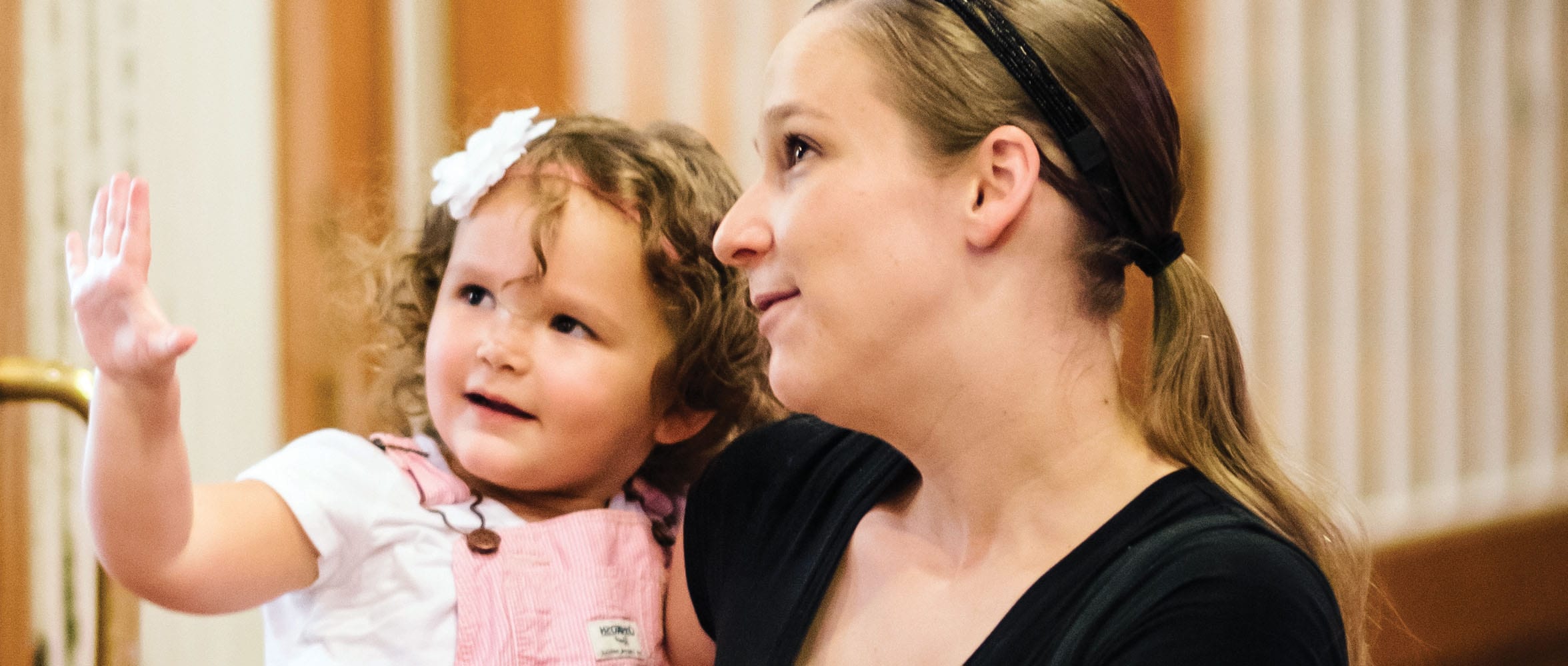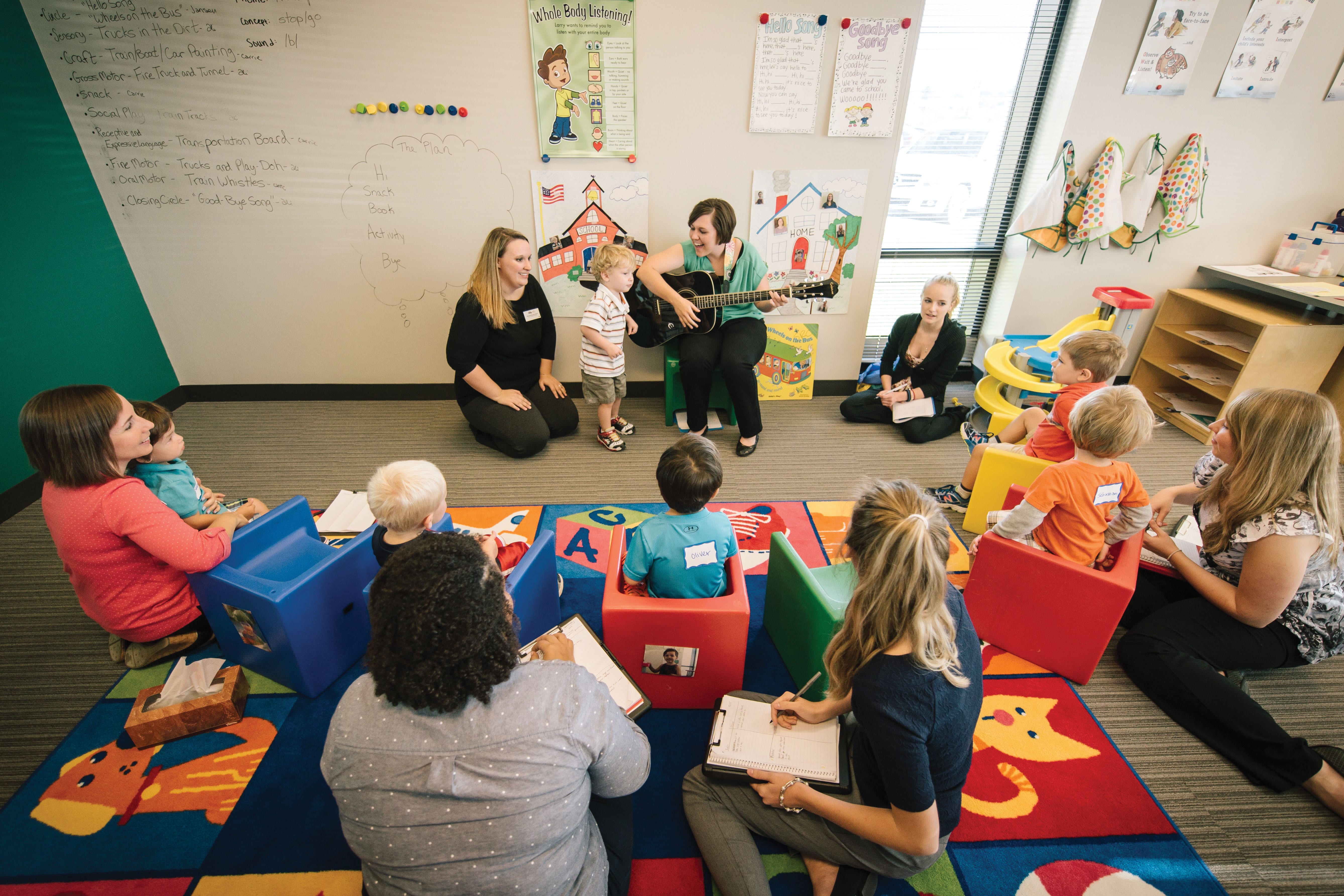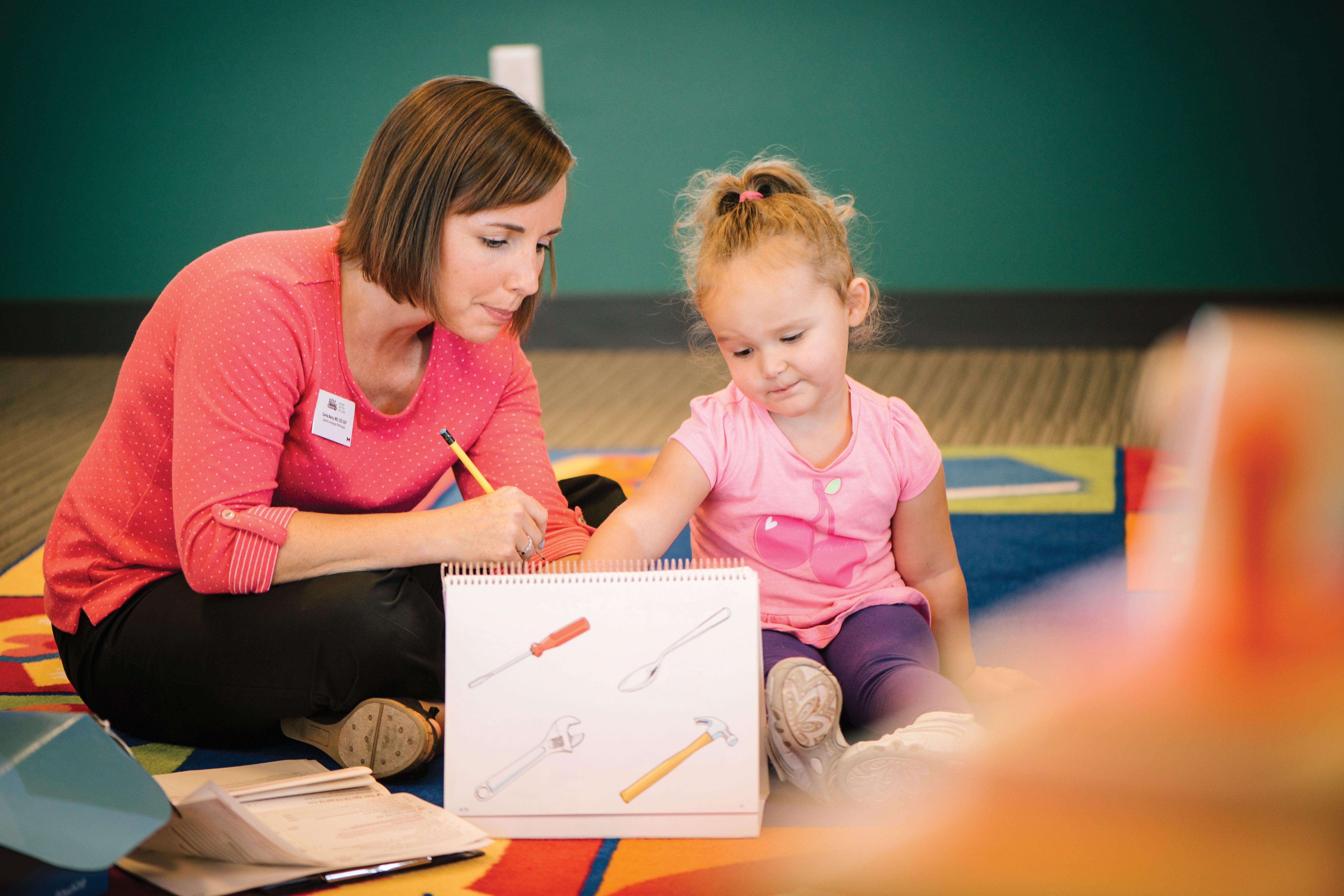Reading time: 5 minutes
Amanda Burley, ’10, ‘11, says her earliest memory is being 3 years old and trying to tell her mother a policeman was on their street. Unfortunately, delayed speech made Burley incomprehensible.
“My mom didn’t understand what I was saying, and I remember it was very frustrating,” Burley says.
When Burley’s mother learned of the Walker Scottish Rite Clinic, a nonprofit organization that helps 2- to 6-year-old children with speech and language disorders free of charge, she enrolled her daughter. In less than a year of group and individual therapy, Burley’s speech was clear enough to land her the lead role in a school play.
“It’s the first place I went for help,” Burley says. “I knew the Walker Clinic would provide my kids with what they need, and I know how compassionate they are.”
Unlike before, she says, “I was able to express myself and tell everyone what I needed and wanted.”
At the time, the Clinic had a midtown St. Louis address. In 2015, the Clinic opened on Maryville’s campus. In that inaugural year alone, 777 children were served. Among those children was Burley’s 3-year-old daughter, Madison. Burley’s 2-year-old son, Parker, is set to receive services later this year.
 “It’s the first place I went for help,” Burley says. “I knew the Walker Clinic would provide my kids with what they need, and I know how compassionate they are.”
“It’s the first place I went for help,” Burley says. “I knew the Walker Clinic would provide my kids with what they need, and I know how compassionate they are.”
Earl Walker’s Gift
Although formative, Burley’s own time at the Clinic would have remained a fuzzy memory if not for an unexpected moment in 2010, when Burley was a senior at Maryville, studying psychology. She was seated in the front row of the Auditorium when President Mark Lombardi, PhD, announced to the Maryville community that the Walker Scottish Rite Clinic would be moving onto campus in conjunction with a larger expansion project to build a new home for the College of Health Professions. This remarkable plan, which brought health care professionals, students and families together under one roof, was made possible by a generous gift from St. Louis philanthropists Earl E. and Myrtle E. Walker. The building is now named for the couple, and the college is now known as the Walker College of Health Professions.
“[The President’s news] triggered a memory of my speech therapy, and I realized it was the same Clinic that had helped me talk,” Burley says. “For 20 years, I didn’t think about the Walker Scottish Rite Clinic, but that day at Maryville it all came back to me.”
The revelation caused Burley to make a life-altering decision. Rather than collect her degree at the end of the semester and continue as a teaching assistant for Special School District (SSD), she would aim higher. A year later, she earned her master’s in early childhood education at Maryville and is now a behavior analyst for SSD, teaching children on the autism spectrum.
“Something profound happened as I sat there listening to Earl Walker talking about donating money to continue to help kids,” Burley says. “I realized I had the same passion to help kids and families.”
The Walker Scottish Rite Clinic
The Walker Scottish Rite Clinic, a nonprofit organization, is one of few providers of free speech and language therapy in the region. Children are provided services regardless of need, and for as long as services are required through age 6.
 “Our therapists are not limited by what insurance policies or people’s financial means dictate,” says Sheri Mistretta, the Clinic’s executive director. “Rather than 10 visits covered in an insurance plan, we see our kids an average of 100 visits. You don’t get that anywhere else.”
“Our therapists are not limited by what insurance policies or people’s financial means dictate,” says Sheri Mistretta, the Clinic’s executive director. “Rather than 10 visits covered in an insurance plan, we see our kids an average of 100 visits. You don’t get that anywhere else.”
The Clinic has a six-month waiting list. Not surprising, Mistretta says, considering 19 percent of preschool age children have a communication disorder, up from 10 percent in 2001. The move to Maryville should help reduce wait times, Mistretta says, thanks to a new graduate program in speech and language pathology that begins in the fall, and which was planned in conjunction with the Clinic’s arrival on campus.
“Maryville is taking our ability to serve kids to a whole new level,” Mistretta says.
In addition to receiving care from graduate students, clients will also benefit from the many disciplines taught at the Walker College of Health Professions, says the dean, Charles Gulas, PhD. For example, many clients currently receive services from Maryville’s music therapy students. Additional collaborations, such as one involving the occupational therapy program, are already in the works.
“The Walker Scottish Rite Clinic is a perfect fit for the Walker College of Health Professions, as it strengthens our ties with the community and acts as a learning lab for our students,” Gulas says. “The children coming in for speech services may benefit from other rehabilitation services, and our students will improve their knowledge about all health professions.”
This story was originally published in the Spring 2016 edition of Maryville Magazine.
 Walker Clinic.H
Walker Clinic.H